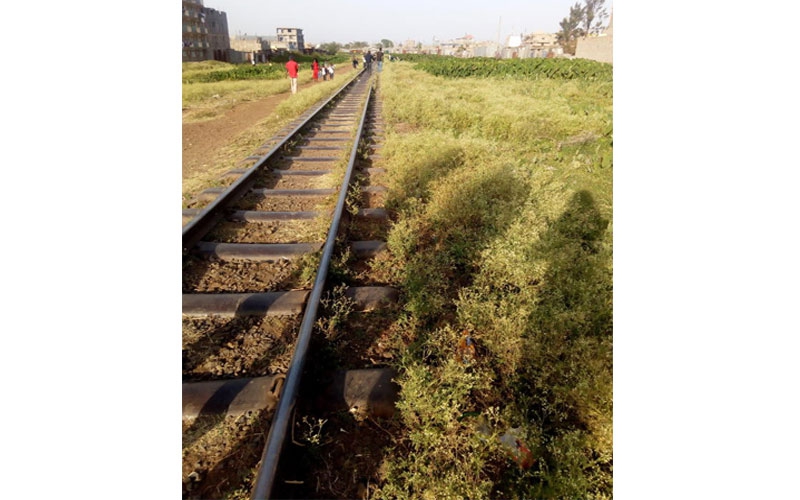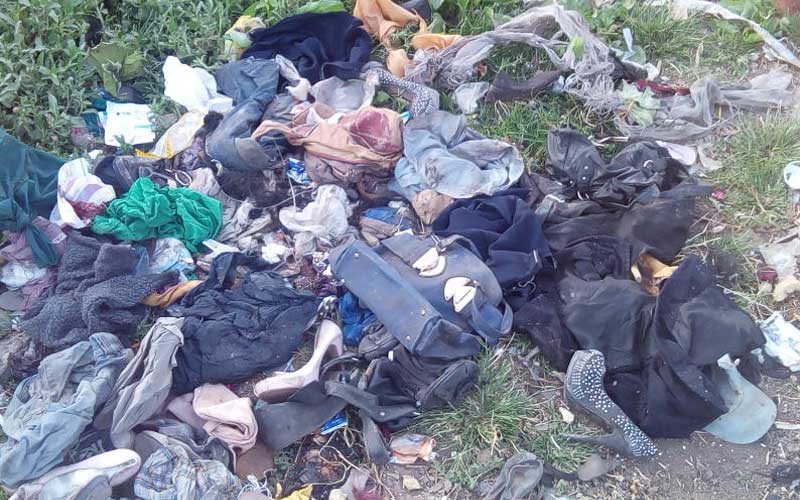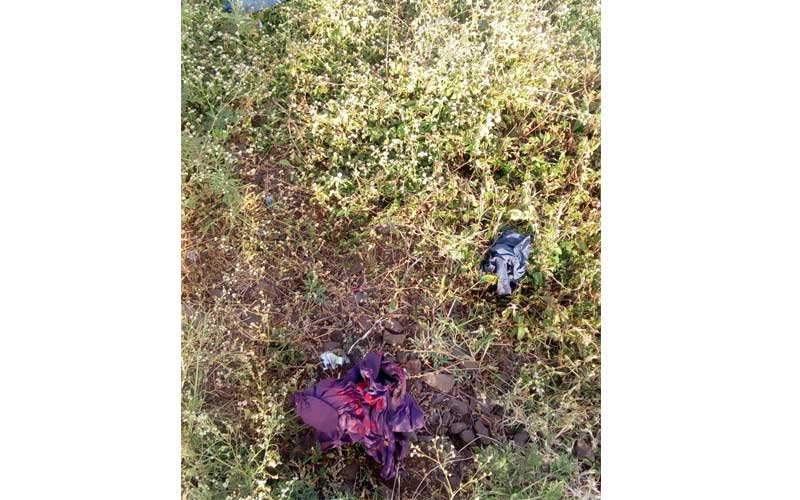
Residents of G7 slum located near a railway line want it uprooted. They claim rape cases have hit a crescendo, with criminals executing their evil acts along the railway line — and in surrounding bushes.
The railway line which snakes its way through the slum, linking the sprawling Umoja 3 estate, Mowlem, Kariobangi South and Dandora, has seared deep scars among residents.
Pedestrians using the railway line in an attempt to avoid rocky surfaces and bushes too have not been spared.
As one walks along the railway, you are greeted by disturbing scenes of scattered innerwear; bras and underpants spread dumped in nearby arrowroot farms. The fear that accompanies Women walking along the railway line is typically indicated on their faces. But despite the several rapes cases that occur in the area, women still risk their lives and use the dangerous short cut.

Matha Wangare who owns a shamba along the railway told The Nairobian a week hardly passes by without a rape incident. Shouts of women screaming for help is common as rapists use yam farms as their hiding den, leaving scattered pants as evidence.
She further revealed that just minutes before we arrived, a woman carrying a baby was rescued from an attacker.
“They took her money, phone which she had tucked in her inner pants,” she says adding: “They ordered her to put her baby down and undress.”
She was saved by some three young men. Simon who sells clothes along the railway says he has been forced to watch as women get raped.
“I cannot fight them, they can easily kill me. This is like my office, they know where to find me should I interrupt their business,” he says, fear written on his face. He identifies the most dangerous place as being ‘‘Kwa Maji”, a place characterised by pools of stagnant water and winding footpaths.
“Women are raped at that spot every single day. Thugs hide at the corner, in yam farms and reeds, from where they pounce on hapless women walking home or from work,” says Simon.
The place is littered with empty bottles of alcohol, innerwear, handbags and the shoes of victims. These were probably left as women struggled to free themselves from their tormentors. Mary, a resident of Umoja, narrated to The Nairobian her ordeal in the hands of rapists along the dreaded railway line.
“I chose to use the railway because there were some three men ahead of me. We were all coming from Dandora. I thought I was safe with them ahead of me. On reaching Kwa Maji, someone suddenly grabbed me from the back — and before I could do anything they were all over me,” says Mary who has sworn never to use the route again.
Mary struggled with her attackers as she screamed for help. They didn’t stop, and no one came to her aid. It was at 7 pm. The three men who were ahead for her took off — and left her to battle alone.
“I fought but they overpowered me. One of them hit me with the butt of a gun as the other two struggled to drag me into a yam farm.”
Mary says she was raped repeatedly and left at the verge of death. She revealed that another woman was also raped before being left to drag herself home.
“I could only hear them call each other ‘bazenga’ — they never used their real names probably for fear of being outed,” she adds.

She says many cases go unreported — as victims fear stigmatisation.
Another victim who identified herself as Joan almost died in the hands of her attackers. She has scars on her body which tell her painful ordeal. Joan claims she was raped a month ago — at gunpoint. The four boys who raped her sprayed some strange substance on her private part before taking off.
“I was coming from Bururburu heading to Dandora, and after passing Kwa Maji safely, one guy approached me, pushed me back and held my hand tightly. It was around 6.30pm — people were still walking along the railway,” she says.
Joan struggled with her attackers as other pedestrians took off in a wild stampede.
“They pointed a gun at my head. I had no option. They raped me in turns before leaving me half naked.”
The attack left her with scars on her body. She went home to nurse her pain and trauma. Joan claims she resorted not to report the matter to the police for fear of being stigmatised — and for the security of her family.
“The boys are well known, but reporting them to officers might put my family at risk,” she says.
Residents claim the gang rapes but rarely kill their victims.
“Years back they could kill, and we would come across bodies dumped along the railway or in the yams and reeds,” she says.
The Nairobian spoke with Kariobangi South Area Chief Madam Jane Muthoni on this vile matter.
She said she was not aware of rape incidences in the area — and that she was yet to receive any report from alleged victims or security officers. She, however, confirmed that theft cases are common in the area.
 The Standard Group Plc is a multi-media organization with investments in media
platforms spanning newspaper print
operations, television, radio broadcasting, digital and online services. The
Standard Group is recognized as a
leading multi-media house in Kenya with a key influence in matters of national and
international interest.
The Standard Group Plc is a multi-media organization with investments in media
platforms spanning newspaper print
operations, television, radio broadcasting, digital and online services. The
Standard Group is recognized as a
leading multi-media house in Kenya with a key influence in matters of national and
international interest.









